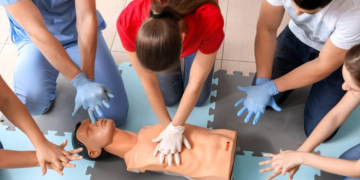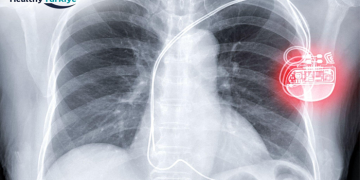A profession in athletics makes you highly prone to various injuries depending on the kind of sport you participate in. This has led to the emergence and spread of pain performance facilities. These facilities tend to attend to athletes’ injuries in detail, offering specialized care when dealing with these conditions to avoid the risk of recurrence. A common injury is shoulder pain Brunswick. Information about this injury and possible treatment plans are highlighted below.
What Does Shoulder Pain Involve?
Shoulder pain typically starts from the shoulder joint or the surrounding ligaments, muscles, or tendons. Arm or shoulder movements or activities may worsen shoulder pain that originates from the joint.
Conditions and diseases that affect structures in your abdomen or chest, like gallbladder disease or heart disease, may also result in shoulder pain.
Referred pain arises from a separate structure and usually does not cause shoulder pain or worsen when you move your shoulder.
Causes
Shoulder pain may arise from various sources, which may include:
- Brachial plexus injury
- Avascular necrosis
- Broken arm
- Joint inflammation
- Broken collarbone
- Dislocated shoulder
- Cervical radiculopathy
- Heart attack
- Frozen shoulder
- Osteoarthritis
- Impingement
- Rheumatoid arthritis
- Polymyalgia rheumatica
- Septic arthritis
- Rotator cuff injury
- Tendonitis
- Sprains
- Thoracic outlet syndrome
- Tendon rupture
- Torn cartilage
Shoulder pain that comes with a sense of tightness in the chest or difficulty breathing may indicate a heart attack so immediate medical attention is required.
It is advisable to go to a medical professional if your shoulder pain occurs after an injury and is accompanied by:
- Inability to use your joint or move your arm away from your body
- A joint that looks like it is deformed
- Sudden swelling
- Intense pain
You may also visit your doctor if the shoulder pain is accompanied by:
- Redness
- Swelling
- Warmth and tenderness around the joint
Mild shoulder pain can be relieved using:
- Resting by avoiding using your shoulder in ways that may worsen or cause pain
- Pain relievers like ibuprofen and naproxen sodium may also help
- Applying an ice pack to the painful shoulder for about twenty minutes several times each day
- Learning exercises that strengthen and stretch your shoulder muscles and rotator cuff tendons
- Continuing to perform range-of-motion exercises to avoid frozen shoulder, especially if you are recovering from tendonitis
- Practice maintaining good posture that keeps your tendons and shoulder muscles in their proper positions
- A physical therapist who may help you safely and slowly to return to your regular activities
Diagnosis and Treatment
Your physician might do a physical exam and other imaging tests to recommend various treatment plans that include:
- Injection of an anti-inflammatory drug like corticosteroid
- Nonsteroidal anti-inflammatory drugs
- Physical therapy
- Surgery if and when other treatment plans are ineffective
Shoulder pain treatment may require observation over an extended period. Athletes may need specialized care during treatment to ensure the injury may not reoccur. Check us out online for any shoulder pain inquiries, or call our offices in Houston, TX.














